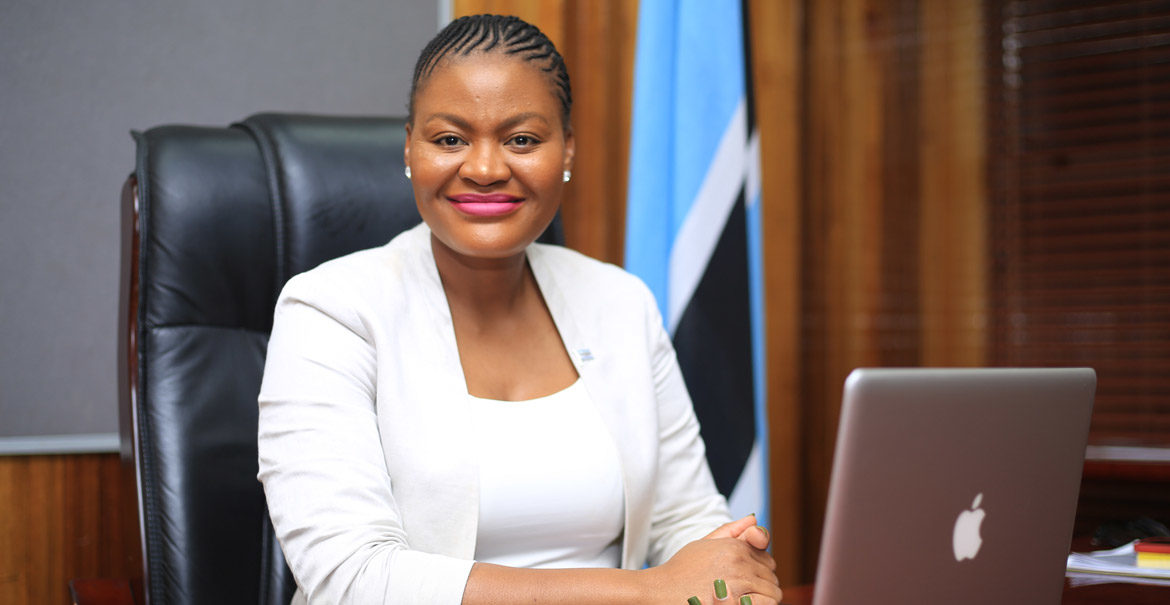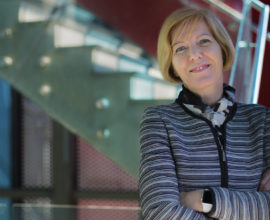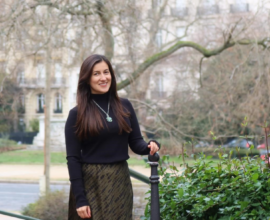Beauty Manake
Botswana’s first female minister of agriculture
![]() Reading Time: 9 minutes
Reading Time: 9 minutes
Assistant Minister of Agricultural Development and Food Security, Botswana
It took 6 months to pin her down for a promised interview, but given our subject’s status, we knew that we had to be patient and understanding. To say that Beauty Manake has a jam-packed schedule is an understatement. Not even a year and a half into her first and prominent political role, she is in charge of nothing less than Botswana’s food security and agricultural strategy, and the pandemic has forced her country into a state of public emergency. This mother of two and CEO of Kungo Farms has gone into politics with a view of fulfilling her long-held dream: transforming agricultural practices in order to ensure the self-sufficiency and sustainability of the country she loves intensely.
We are glad to have persevered because, as a result, we get a special glimpse into the fascinating life of a high-profile yet unorthodox politician. Beauty shares her memories of an upbringing, which did not preordain her to the eminent career she leads. She tells us why, swimming against the tide, she decided to move into farming and she recalls in vivid detail the day she found out about her ministerial role. In fact, once we get Beauty on the phone, she talks enthusiastically and endlessly. “Forgive me, I’m a politician, I talk too much!” she apologises, tongue in cheek. Revealing her candid nature, she confesses, “Thank you for hunting me down so relentlessly for this interview. I didn’t realise I had so much to share about my own life story. I am so glad for the opportunity you have given me to appreciate where I come from and what I have accomplished”.
You don’t come from a long line of politicians. What is your family background?
That’s right. I grew up in Selibe Phikwe, a small mining town in eastern Botswana where my father was a miner. My mother stayed at home to look after my siblings and I, and when we reached our teens, she started a small import business. She travelled to South Africa where the land is greener, to buy fruits and vegetables, returning to sell them in our community. My brother and I took turns to travel with her and help her out. My parents were miles away from the political sphere, but I got there by dint of hard work, an attitude that they instilled in me.
How did you end up in a white-collar job at a diamond company?
My aunt had a strong influence on my life choices. Her son was one of the few Batswana to graduate from Harvard. She was strict, had high expectations for my academic achievements and pushed me to become a doctor. But I have always been strong-minded and I chose my own path. When I enrolled in a business and information systems course, my decision didn’t go down well with her. She told me, with a hint of sarcasm, “Good choice! Then when you graduate you can manage your mother’s tomato business”. I found this prospect ludicrous, and I was slightly offended at the time. In a funny twist of fate, here I am today the proud owner of a 35-hectare vegetable farm, and my aunt has become one of my fiercest supporters.
After university, I landed a well-paid job as systems technologist at De Beers, the diamond company. This was where every graduate dreamt of working because of the pay and the benefits, but in time, I felt out of place. When the activity slowed down during the 2008 recession, we were instructed to simply wait for the European market to pick up again, and I found this strategy frustrating and demoralising.
What first motivated your transition into farming?
After visiting hundreds of farms in South Africa with my mother, I came to appreciate the farming life. And I did the maths: with her vegetable business, my mother was making more per week than I was! I figured that if I set up a farm, my mother would not have to travel long distances anymore, and she could buy from me instead. In addition, in Botswana we are lucky to have access to a huge amount of land – our country has an area roughly the size of France for a population of only 2.1 million. Lastly, I wanted to contribute to making my country more self-reliant.
I handed in my resignation to De Beers, explaining that I wanted to be my own boss. They tried to retain me with the prospect of a secondment to the UK. However, I had enough confidence to believe that somehow, I would find my own way to Europe.
So was the process of setting up your farm as smooth as you had anticipated?
In 2013, aged 25, I applied for funding and set up Kungo Farms. The first few years were tough. My mother disapproved of my decision to “reduce myself to becoming a farmer”. She aspired for me to enjoy a more comfortable life than hers and thought I deserved a career in the corporate world. She wanted me to rock up those stilettos!
Naively, I had thought that my exposure to farming through my mother was enough but it was definitely far more challenging than I’d expected. I particularly struggled to access the market. Then, developing my venture suffered a huge setback when I had a bad car accident on my way to the farm. It took me almost 6 months to be able to walk again. I do not know what my business would have become if it hadn’t been for my father who paid my workers out of his own wages during that time.
How did the Food & Agribusiness Management degree at Audencia change your vision of agribusiness?
There came a point when I felt I’d finally grasped the agricultural production ecosystem and the immediate needs of the market. But I wanted to become properly skilled in agricultural business and be able to forecast the trends. I am fortunate that my husband – a geotechnical engineer, is as passionate about farming as I am. He encouraged me to pursue further studies to professionalise our farming enterprise. He wanted me to become a “smart educated farmer” who can make a difference.
I chose to study at Audencia because of the well-designed curriculum and the dual programme in Brazil. My sponsorship application was approved, and this is how, in September 2014, I ended up in Nantes. The curriculum was outstanding and I was especially surprised by how much I learnt about my own continent. The experience was also testing. I quickly mastered the phrase “Je ne parle pas français” but people would carry on speaking to me in French regardless! And everything was so damn expensive, which came as a shock as in Botswana, the government has provided for us most of our lives. However, I learnt the tricks of surviving on a budget.
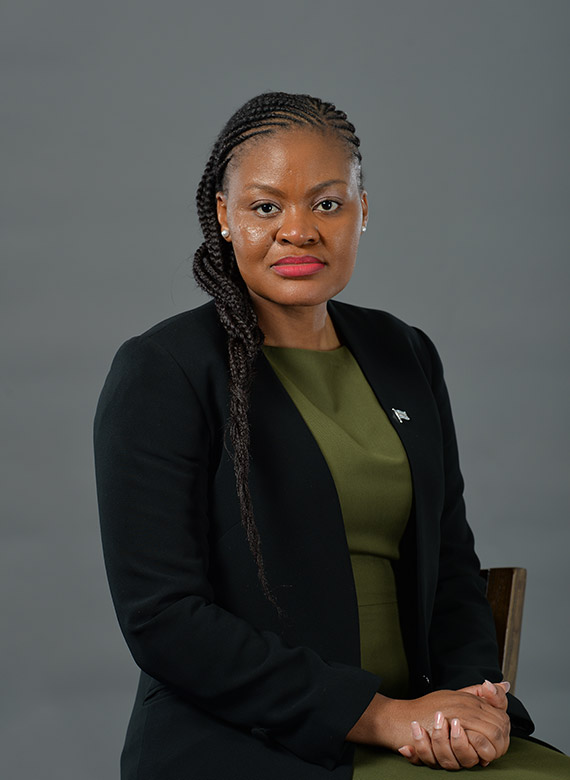
How did you become an expert in sustainable agribusiness?
After 6 months in Nantes and a further 6 months in Sao Paulo, I came home a different person. The programme totally opened my mind to sustainable thinking. I felt ready to apply all this knowledge and to run a business that would be critical in developing my rural environment. As a country, we have been resting on our laurels for too long, spoiled by abundant diamond reserves. We have been importing food excessively, just because we could afford it – not a sustainable strategy. Food waste is also a cultural issue: for instance, at funerals and weddings, hosts always provide excessive amounts of food, as a wealth indicator. We must also work harder at conserving water and electricity. I have made it my mission to change both the system and the mindset.
With a few agro-dealers, we had this idea of setting up an event that would have educational values beyond the traditional trade shows. I pushed the sustainability agenda, we invited all the key players to join the conversation, from the grassroots organisations all the way to the senior executives at the diamond companies, and I started leading a sort of green revolution. Soon after, Lucara, a Canadian diamond Company operating in Botswana approached me. They had heard about my work as they were looking to expand into sustainable agriculture, and they employed me as a CSR consultant.
How did you make the jump from farming to politics?
The president of Botswana is also originally a farmer. I first met him when he was vice-president and I challenged him on different policies. I remember thinking: “He is eloquent and smart, a visionary; he is taking the time to answer my questions, I can see myself working with this guy!” My vision was of a transformed rural economy where a vibrant agricultural sector would help people move back from the towns to the villages. I was applying that model as a consultant and although I was impacting only a few people’s lives, I had proven that I had nailed it. The VP paid attention, we got to know each other better, and I invited him to open some sessions at our show. In 2019, just a few days after he won the presidential elections, he asked me to submit my CV. I assumed he was looking for an advisor or a public officer, but in truth, I had no idea what I was applying for. Straight afterwards, I left for a holiday with friends in Durban, South Africa.
I will never forget the day I received that phone call! We were getting ready to go out for dinner and feeling blissfully relaxed after time in the spa. My phone rang; I glanced at the screen and yelled at my friend, “It’s His Excellency! It’s the President!” He said that he needed to meet me urgently and that he would send a car to pick me up from the airport. I just managed to squeeze in a quick shopping session, because, as a farm girl, I had no formal clothes. An hour later, wearing my brand-new suit, I was in his office at the State House and I had the shock of my life when he asked me to join his cabinet and actually be part of the decision-makers. He asked me for my thoughts and I accepted on the spot. I explained that the job was in line with what I had been advocating for years and was an opportunity for me to build a sustainable future for my kids and the generations to come. To which he replied, “Great, now let’s get to work”. In November 2019, I joined the ministry.
Has your financial and social status had an impact on your family?
20 years ago, when I was going around farms in South Africa with my mum, I spotted the wonderful Stanford Lake College with its first-world aura. I knew that my mother didn’t have the means to send me there, but I dreamt that one day my children would. Today, I am proud that the elder of my two boys – who are 14 and 9 – is a pupil there. The wealth that I have achieved through farming has also allowed me to make sure that my parents are comfortable. I have built a nice house for them in our home village. Now my mother doesn’t need to travel to South Africa. They have moved to my farm where I have delegated the day-to-day operations to a team.
When she realised how fulfilling it was for me, my mother began to support my decision to go into farming. My parents admire my move into politics. The other day, my dad was queuing at the bank and a customer told him “Have a seat sir, come on; your daughter is the minister!” He was flattered and beaming with pride, but he didn’t want to appear arrogant. Personally, I still haven’t really adjusted to my new status! I don’t call myself a minister, I just see my job as a fantastic opportunity to transform my country. I have not defined the position yet and I do not let the position define me. If, at the end of the five-year term, I am able to implement my vision and deliver results, I will be the happiest person in the world, and will start calling myself “the minister who made a difference”.
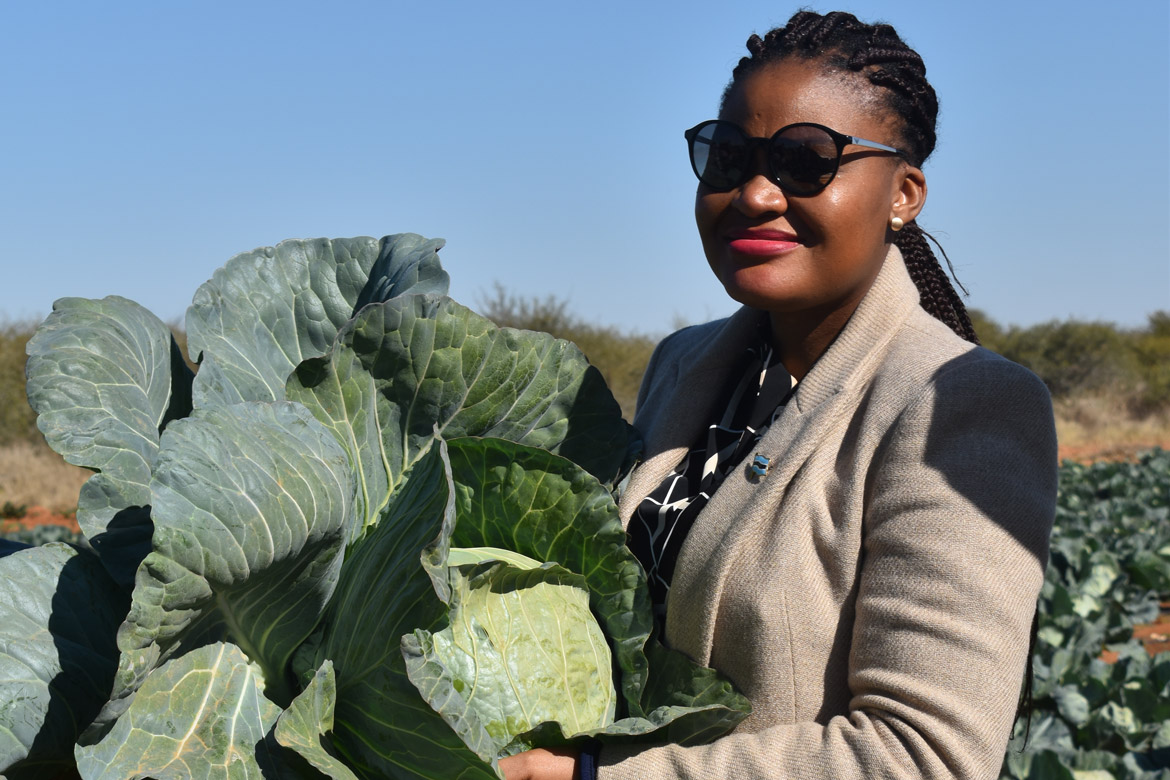
What are your plans for the weekend? Will you get a chance to relax?
Frankly, there is very little opportunity for me to switch off. My phone beeps nonstop, I need to respond to incessant demands and I run around constantly. Being in politics during these Covid times has been testing, but makes you appreciate your strength. For the past three days, parliament has been in session until midnight, so we are all exhausted. I rarely get time to myself, and when I do, I use it to do some deep work.
Regrettably, my husband, parents and children are hundreds of kilometres away from me as the pandemic has locked us in separate zones. I have not had a chance to talk to them for a whole week. Today is a public holiday; I have enjoyed a rare lie-in until 9.30am and I am going to take today off and rest. The way I prefer to refuel is by hiking in the mountains with a friend, or sitting down with a glass of wine to enjoy watching a TV series. I will let you in on my guilty pleasure: at the moment I am addicted the South African spin-off of the reality TV show called “The Real Housewives of…” It follows larger than life and assertive businesswomen… and I can (somewhat!) relate to them…
